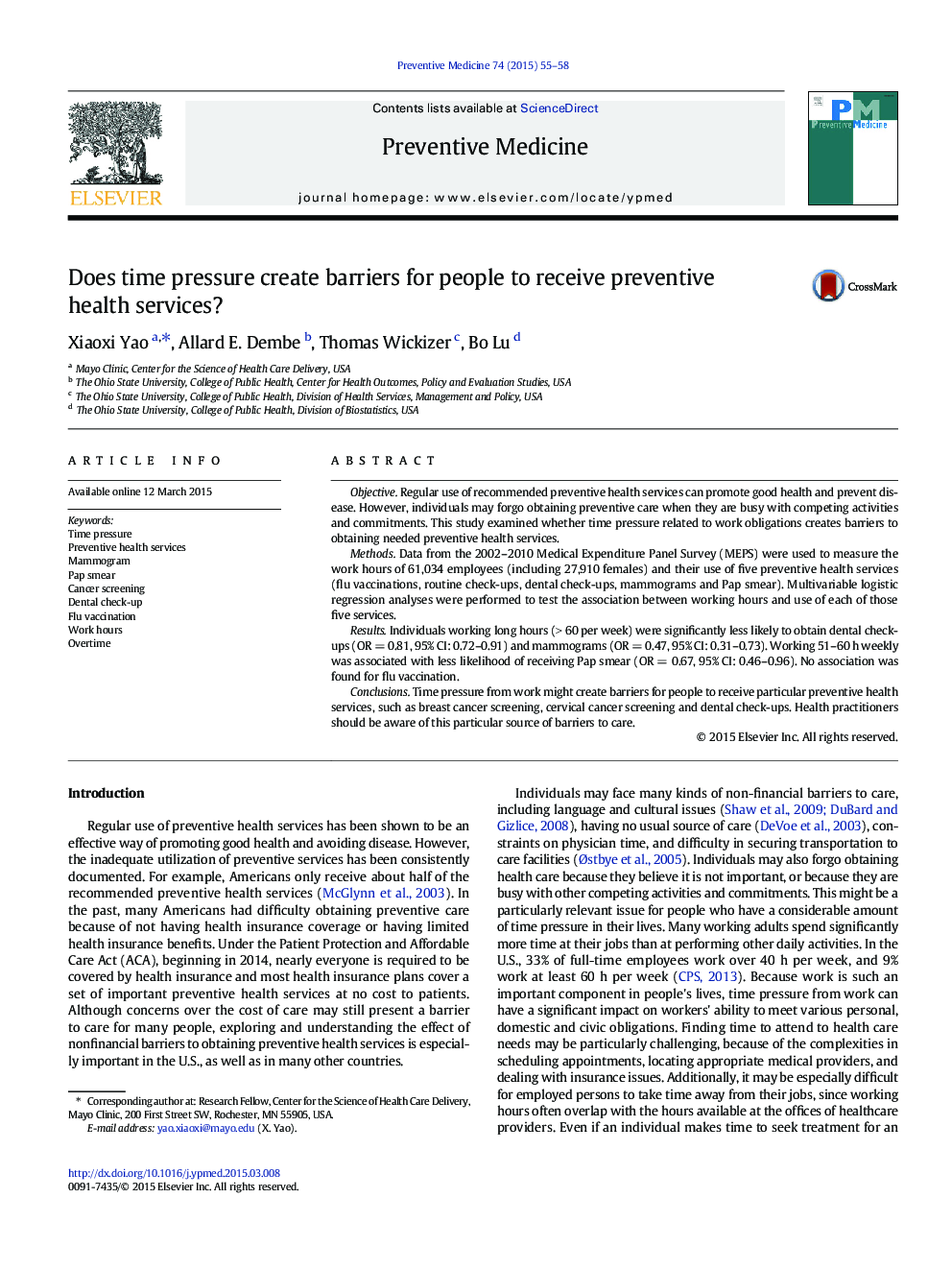| Article ID | Journal | Published Year | Pages | File Type |
|---|---|---|---|---|
| 6046792 | Preventive Medicine | 2015 | 4 Pages |
â¢Time pressure from work may create barriers for people to receive preventive care.â¢Medical Expenditure Panel Survey was used to measure work hours and preventive care.â¢61,034 full-time employees with private health insurance in 2002-2010 were included.â¢Working over 60 h/week was related to less use of mammograms and dental check-ups.â¢Working 51-60 h/week was related to less use of Pap smear.
ObjectiveRegular use of recommended preventive health services can promote good health and prevent disease. However, individuals may forgo obtaining preventive care when they are busy with competing activities and commitments. This study examined whether time pressure related to work obligations creates barriers to obtaining needed preventive health services.MethodsData from the 2002-2010 Medical Expenditure Panel Survey (MEPS) were used to measure the work hours of 61,034 employees (including 27,910 females) and their use of five preventive health services (flu vaccinations, routine check-ups, dental check-ups, mammograms and Pap smear). Multivariable logistic regression analyses were performed to test the association between working hours and use of each of those five services.ResultsIndividuals working long hours (>Â 60 per week) were significantly less likely to obtain dental check-ups (ORÂ =Â 0.81, 95% CI: 0.72-0.91) and mammograms (ORÂ =Â 0.47, 95% CI: 0.31-0.73). Working 51-60Â h weekly was associated with less likelihood of receiving Pap smear (ORÂ =Â 0.67, 95% CI: 0.46-0.96). No association was found for flu vaccination.ConclusionsTime pressure from work might create barriers for people to receive particular preventive health services, such as breast cancer screening, cervical cancer screening and dental check-ups. Health practitioners should be aware of this particular source of barriers to care.
